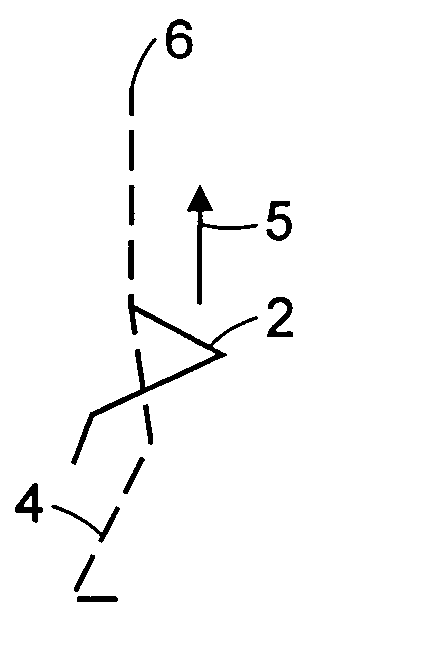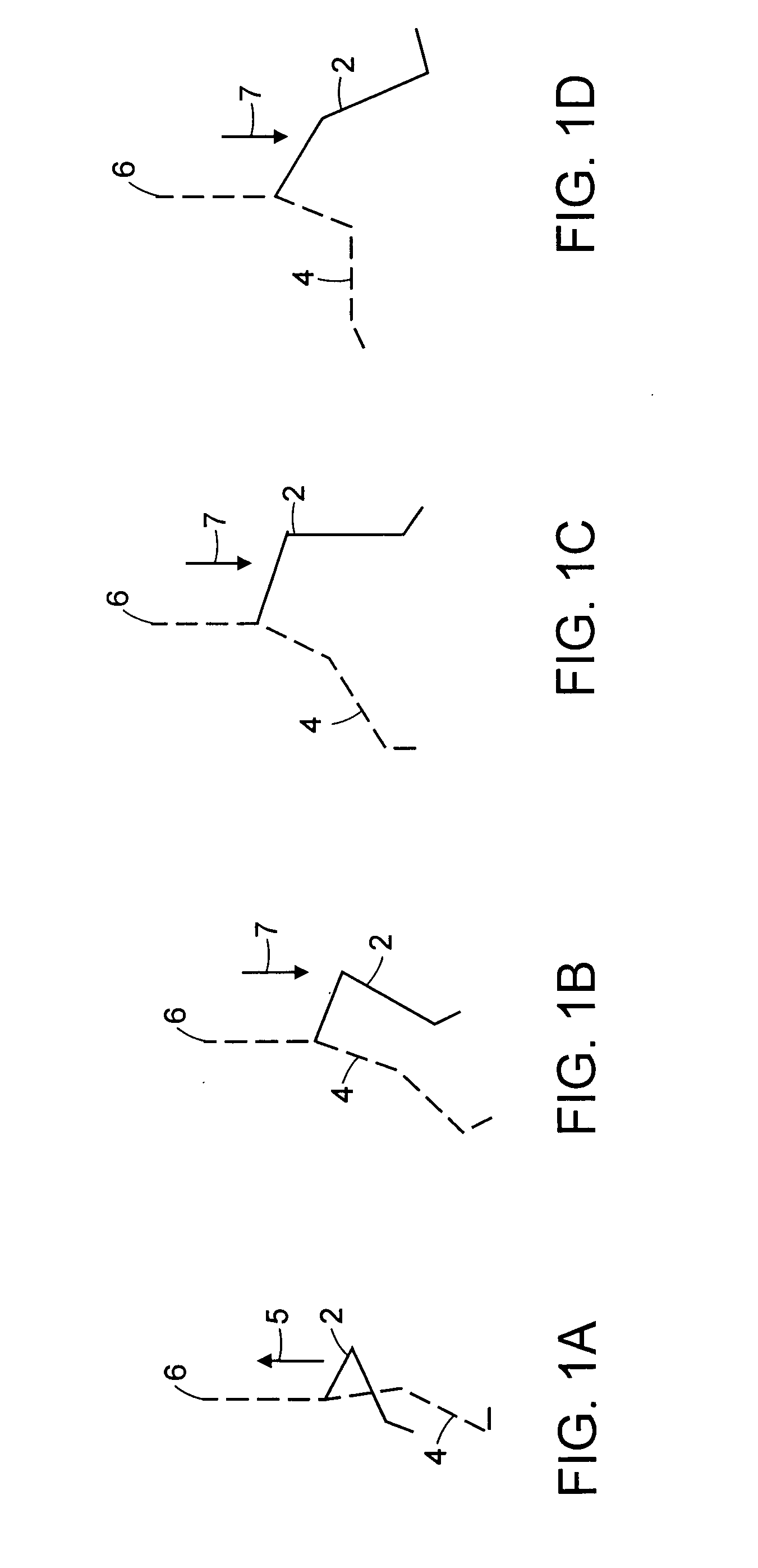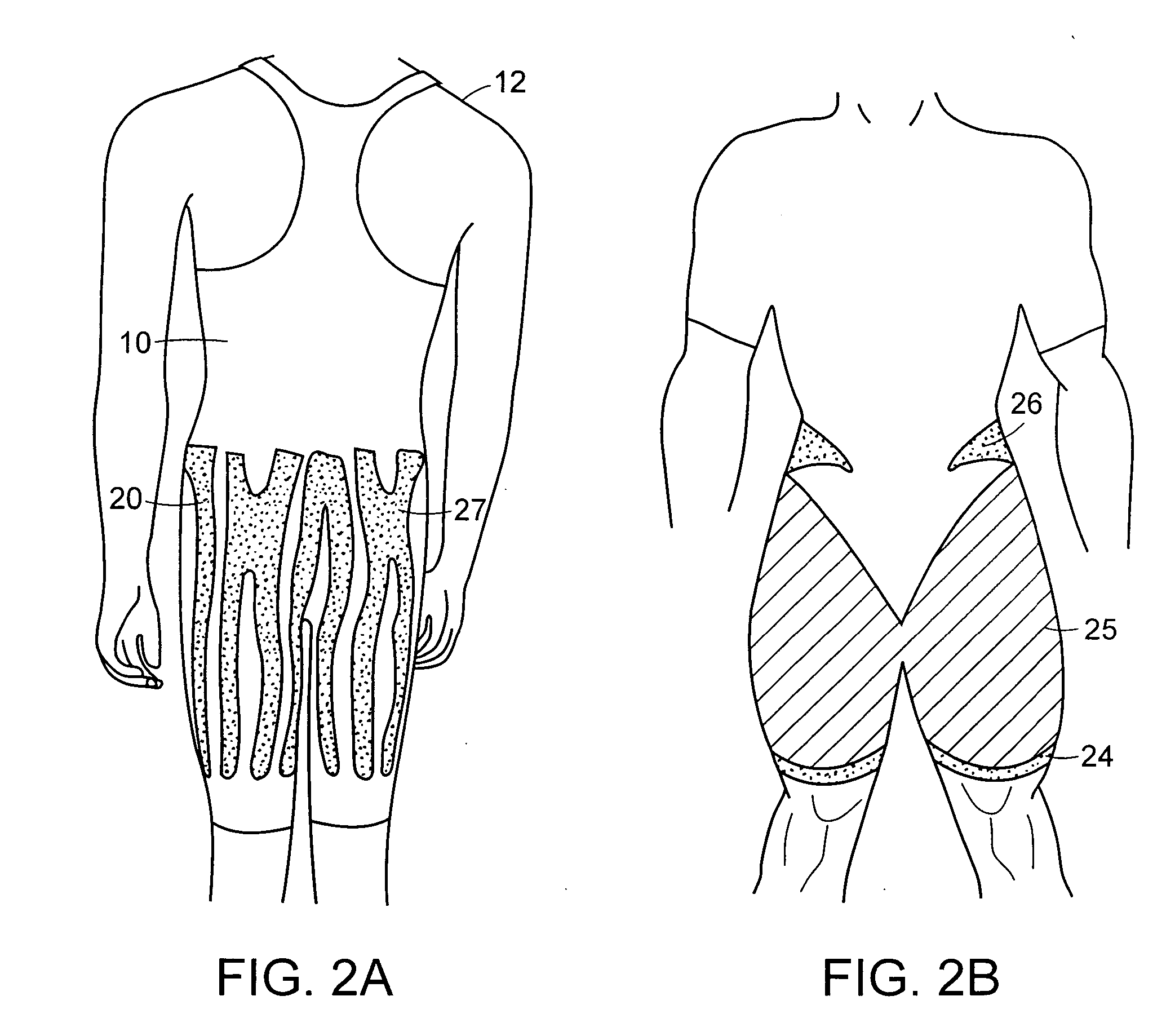Garment
- Summary
- Abstract
- Description
- Claims
- Application Information
AI Technical Summary
Benefits of technology
Problems solved by technology
Method used
Image
Examples
Embodiment Construction
[0036] In the following description, various embodiments of the present invention are described with reference to an arrangement of elasticity elements in a sport suit or sport pant for running or playing soccer. It is, however, to be understood that the present invention can also be used for garments for other parts of the body and other sports with, for example, repetitive movements of the shoulders and arms, such as in rowing. Other conceivable fields of use are sport disciplines that involve the throwing of objects, such as a discus, a shot put, and a javelin. Finally, the present invention can also provide an active support for repeated everyday movements of a part of the body.
[0037] Before the constructional features of the various embodiments are explained in detail, the course of motion during running, and in particular during sprinting, is briefly explained in order to facilitate the understanding of the advantageous energy management by the garment in accordance with the ...
PUM
 Login to View More
Login to View More Abstract
Description
Claims
Application Information
 Login to View More
Login to View More - R&D
- Intellectual Property
- Life Sciences
- Materials
- Tech Scout
- Unparalleled Data Quality
- Higher Quality Content
- 60% Fewer Hallucinations
Browse by: Latest US Patents, China's latest patents, Technical Efficacy Thesaurus, Application Domain, Technology Topic, Popular Technical Reports.
© 2025 PatSnap. All rights reserved.Legal|Privacy policy|Modern Slavery Act Transparency Statement|Sitemap|About US| Contact US: help@patsnap.com



